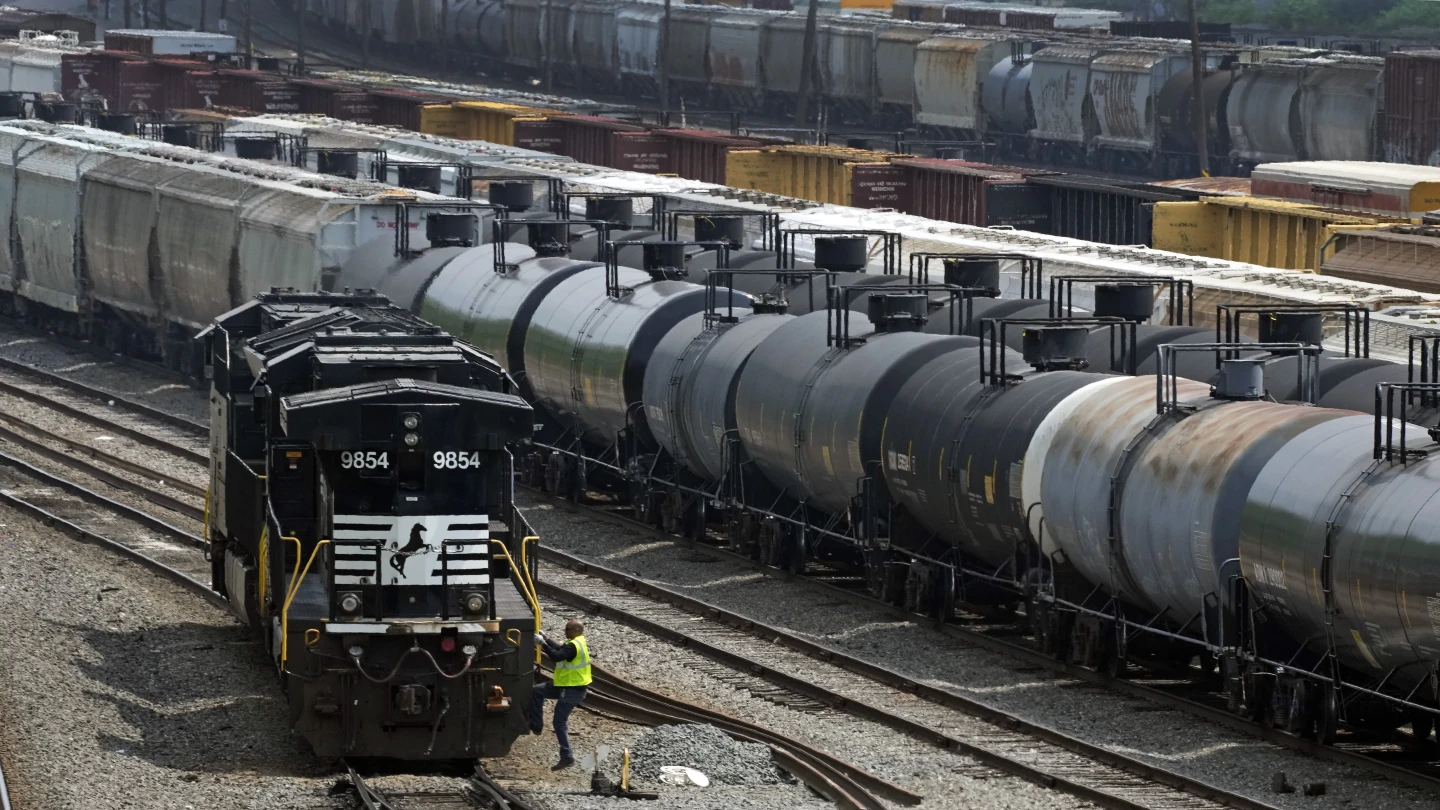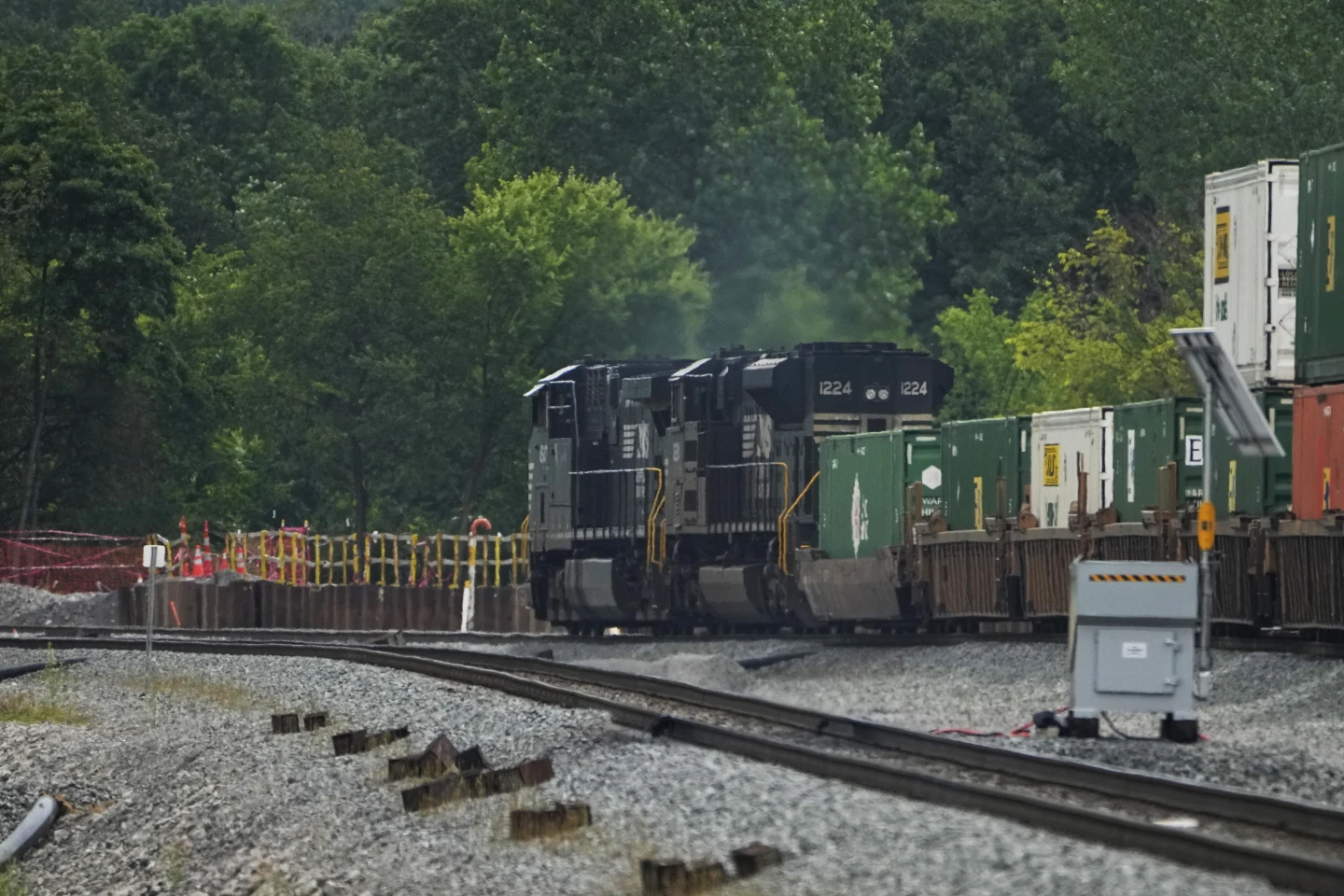The leader of the National Transportation Safety Board said on Tuesday that Norfolk Southern attempted multiple times to interfere with the agency’s investigation into the East Palestine derailment. This included trying to influence the findings regarding the decision to use a vent and burn method on five tank cars carrying vinyl chloride.
During the hearing, the NTSB confirmed that the derailment in February 2023 was caused by a wheel bearing that had been on fire for over 20 miles before being detected by inaccurate trackside sensors.
Following the incident, the board approved over twenty recommendations aimed at preventing similar accidents. These included establishing federal regulations for the sensors and improving how railroads respond to their alerts. There are also plans to review the criteria used to determine when a vent and burn procedure should be conducted.
The derailment, which occurred near East Palestine close to the Pennsylvania border, involved more than thirty freight cars, eleven of which were carrying hazardous materials.

Norfolk Southern locomotives are moved in Norfolk Southern Conway Terminal (Via Jake Gabana/Shutterstock)
Some residents were evacuated immediately, while others were forced to leave their homes days later due to concerns of a potential explosion. Despite health risks, officials intentionally ignited and burned the vinyl chloride three days after the derailment, causing flames and smoke to rise into the sky.
At the conclusion of the hearing, NTSB Chair Jennifer Homendy accused Norfolk Southern of obstructing the investigation and misusing its role as a participant to gather information.
“Norfolk Southern’s misuse of the investigative process was unprecedented and unacceptable,” Homendy stated.
Homendy mentioned several instances where the railroad either delayed or withheld information from investigators. She also noted that, at the request of investigators, she had to call Norfolk Southern twice and threaten to issue subpoenas to obtain necessary information.
According to Homendy, a contractor for the railroad claimed they did not record temperature changes on the tank cars carrying vinyl chloride, but the NTSB suspected otherwise.


























